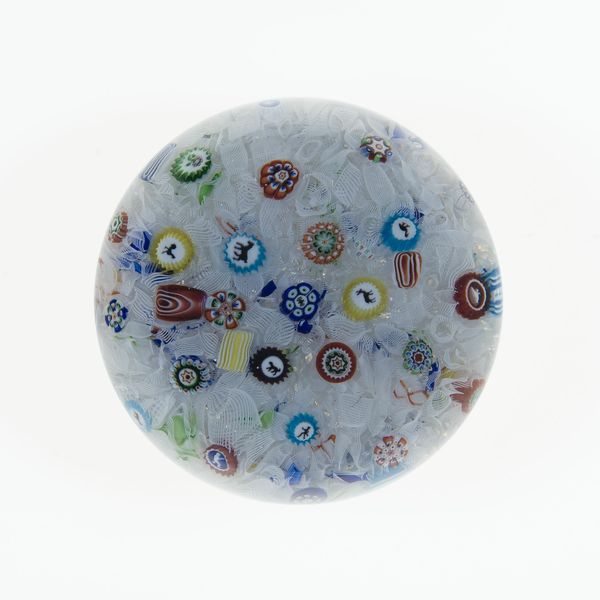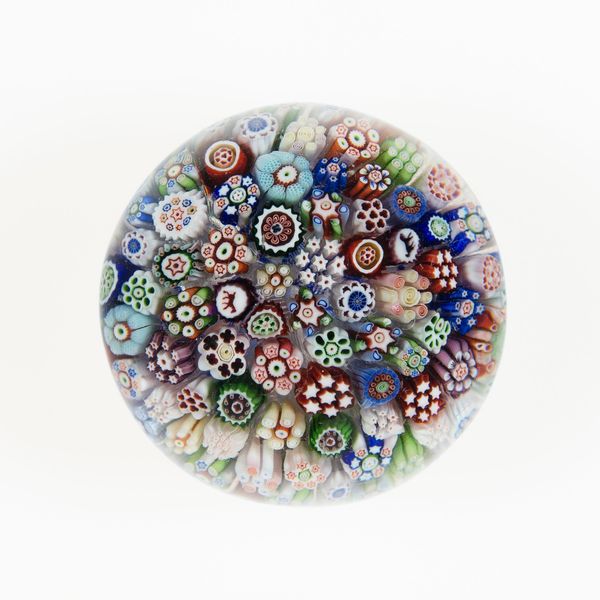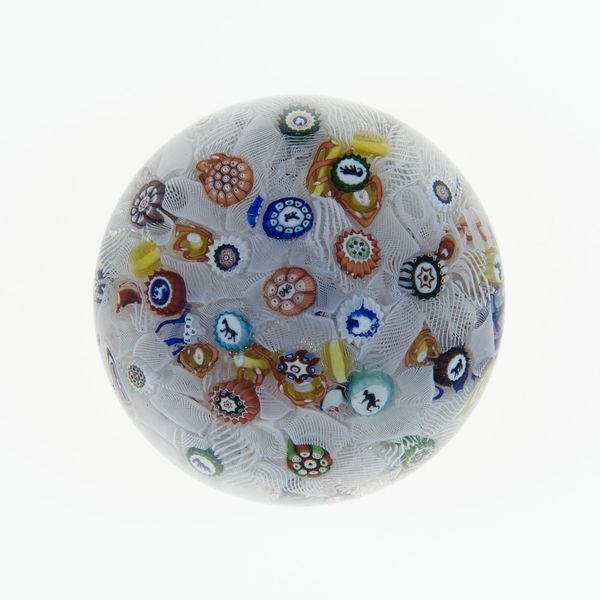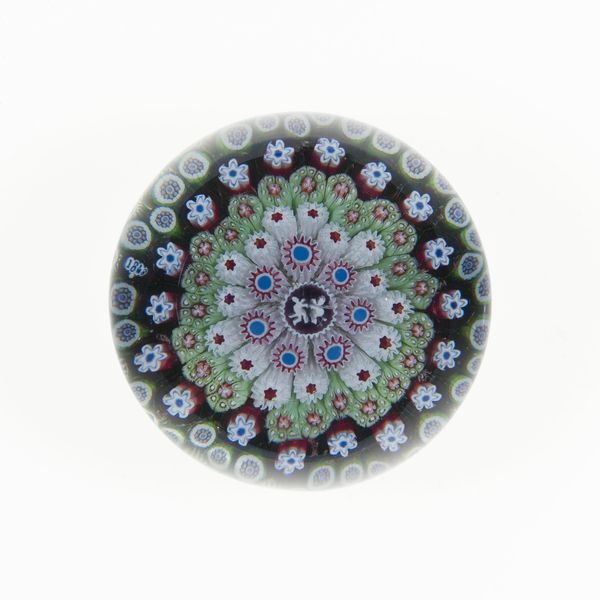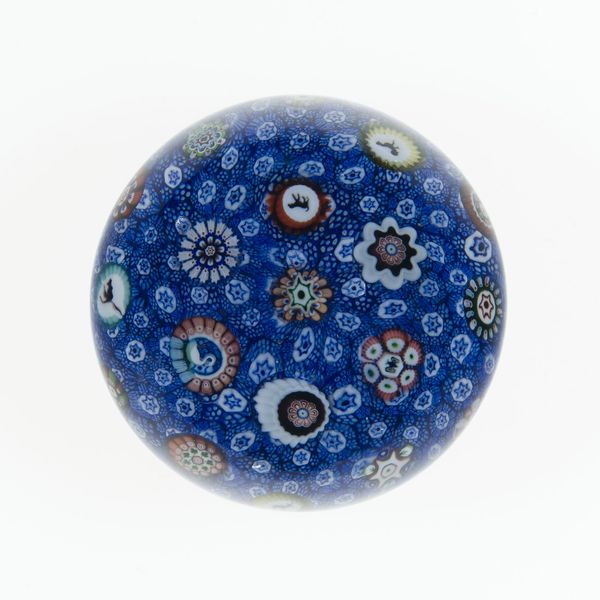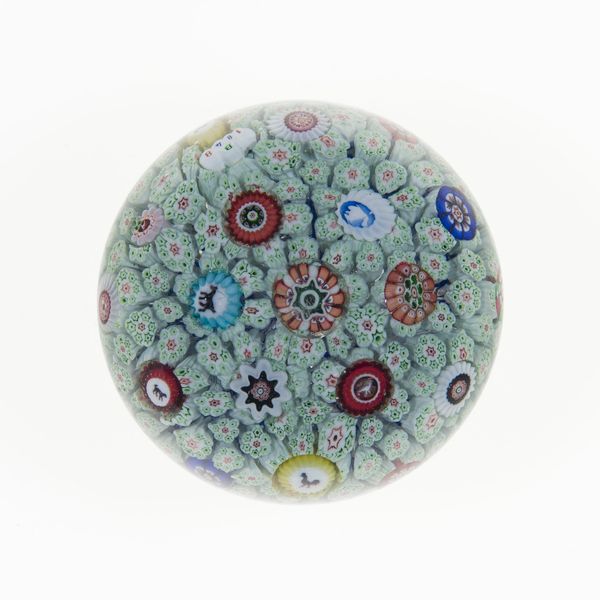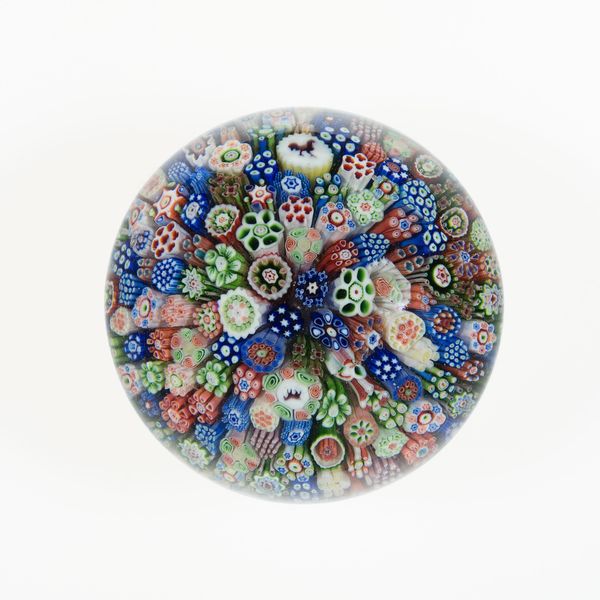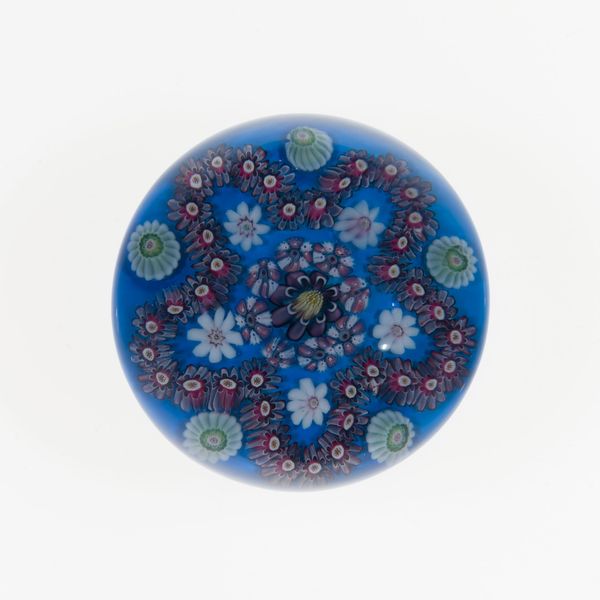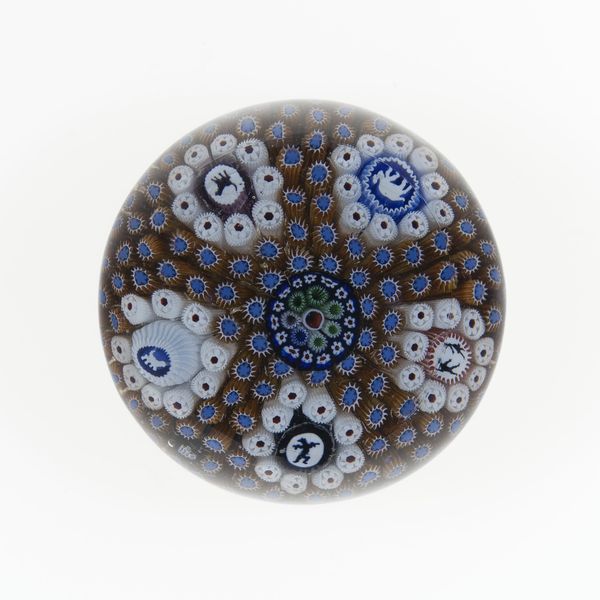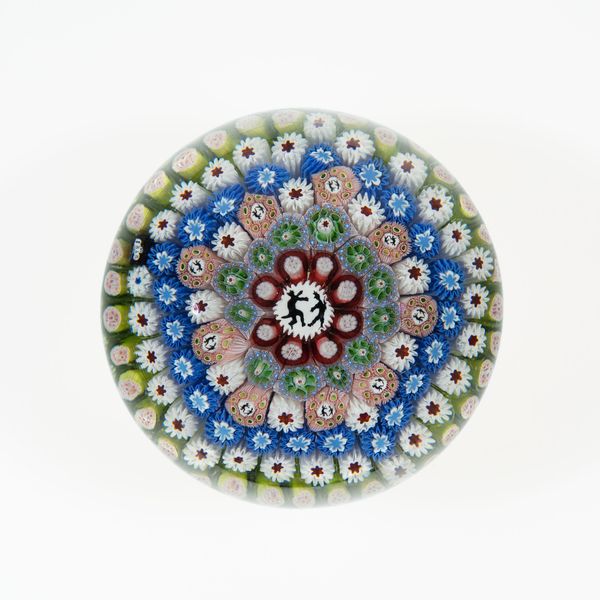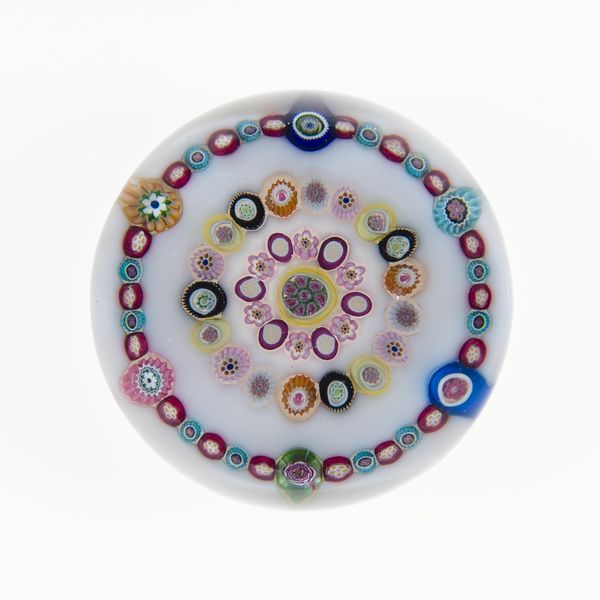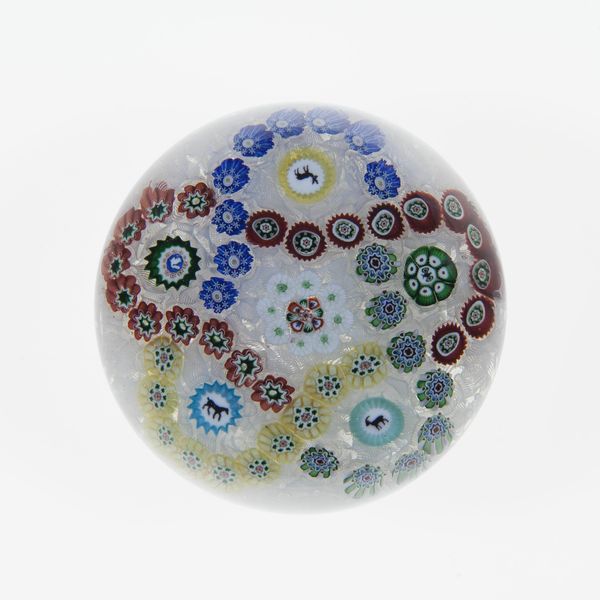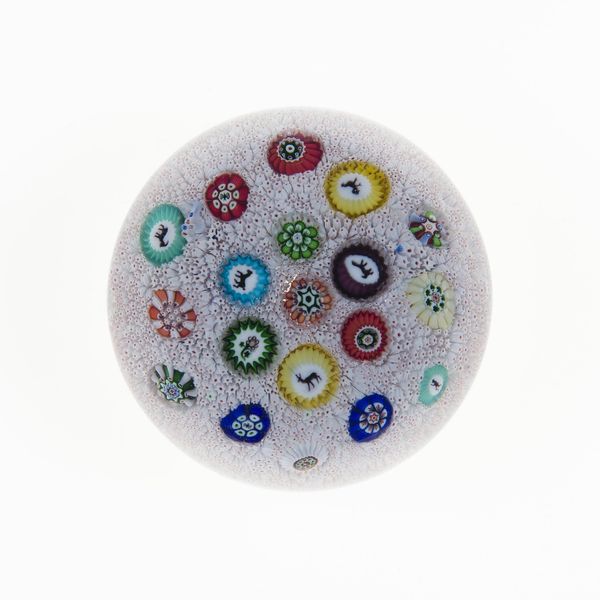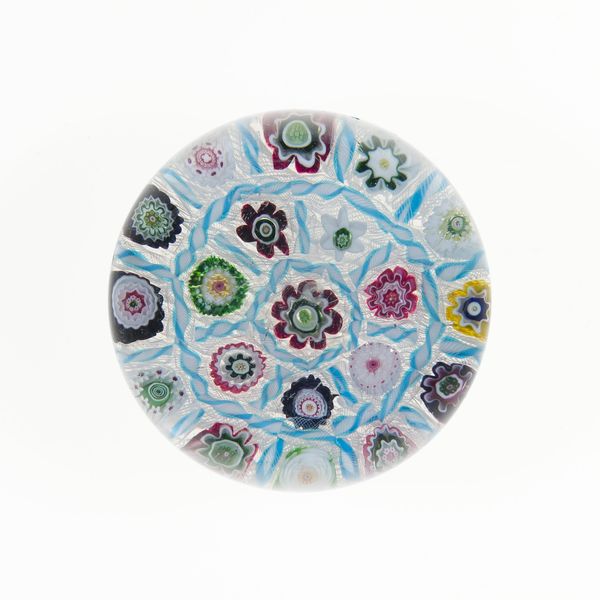
paper, glass
#
clear focal point
#
circular oval feature
#
decorative element
#
egg art
#
animal
#
3d printed part
#
dog
#
round design
#
bright focal point
#
paper
#
glass
#
white focal point
#
ceramic
#
round circular shape
#
decorative-art
Dimensions: Diam. 7.6 cm (3 in.)
Copyright: Public Domain
Editor: This is the "Paperweight" made around 1848 by Compagnie de Saint Louis. It's made of glass, and what strikes me is how detailed and almost miniaturized everything is. It looks like a contained world. What's your take? Curator: It's fascinating to consider this object within the burgeoning culture of bourgeois domesticity in the mid-19th century. This wasn’t just decorative art; it’s tied to broader trends of display and collecting that were shaping social status and personal identity. Do you notice anything specific about the imagery? Editor: Yes! The little animals. And the silhouettes in the middle, they look like figures dancing. They're so small! Why animals and dancers? Curator: Well, hunting and leisurely social gatherings were central to upper-class life. So, while seemingly innocuous, it subtly reinforces a specific vision of societal ideals. A self-contained world reflecting an aspirational social standing, wouldn't you agree? The way it reflects light, like a little gem, would draw attention in any Victorian parlor. Editor: I never thought about it that way. It makes so much sense now why someone would display something like this. So, its purpose wasn't only decorative but a statement too? Curator: Exactly! Objects like these served as conversation pieces, subtly communicating wealth, taste, and adherence to social norms. Now look closely, do the choices of colors suggest anything to you, in connection to wealth or privilege? Editor: Hmm…maybe the clear glass itself represents clarity, sophistication? I hadn’t really considered the colors beyond their visual appeal. Curator: The clarity emphasizes value, as well as the relative scarcity of colorless glass at that time. That the entire object presents an ideal of how the world ought to be seen. Editor: Wow, it's much deeper than just a pretty paperweight! Thanks; I’ll definitely be looking at decorative art with new eyes from now on!
Comments
No comments
Be the first to comment and join the conversation on the ultimate creative platform.
